‘Tobuo Jege Uthi’: Commodification of women in a patriarchal world
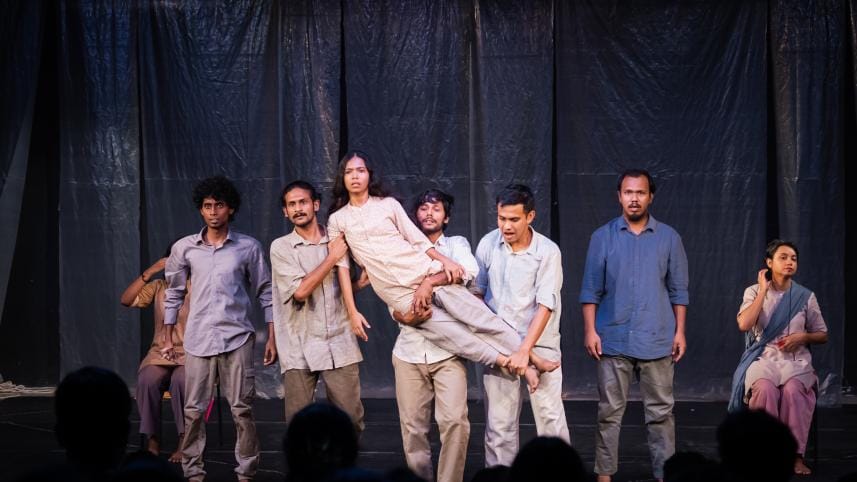
Acclaimed theatre director and founder of Dhaka University's Department of Theatre and Music, Syed Jamil Ahmed, established Spardha Independent Collective with just five members in September 2018. Among them is the notable Mohsina Akhter. A direct student of Syed Jamil Ahmed, she is simultaneously a director, performer, and costume designer. This May, she made her big-screen debut with the release of "Jaya aar Sharmin". However, she prefers not to differentiate between mediums of storytelling. As she explains, "People who know how to swim can swim in any body of water."
Mohsina is now making her directorial and writing debut with "Tobuo Jege Uthi."

After the 2024 revolution, despite its positive outcomes, a sense of uncertainty began to permeate the political landscape of Bangladesh. This doubt and fear also cast a shadow over the cultural sphere, particularly within progressive theatre arts. According to its creators, "Utshobe Spardha" is Spardha ITC's effort to revive the cultural practices that had diminished in the post-revolution period.
This nearly three-month-long festival (8 August – 5 October), encompassing workshops, theatre performances, and paratheatre, stands as a testament to the rebirth of a new Bangladesh. A fresh wave of passionate and versatile voices has come together to carry this movement forward with renewed energy and resolve.
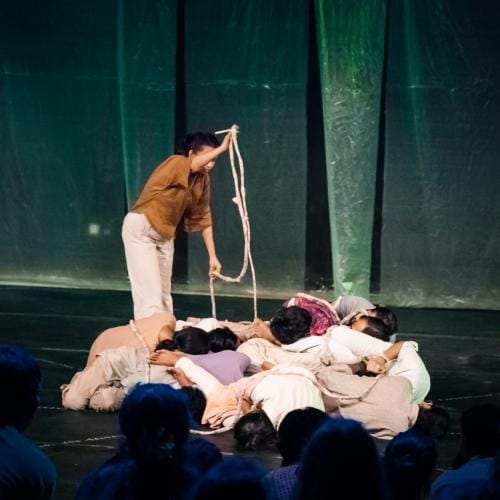
The shows include a theatre adaptation of Nilima Ibrahim's "Ami Birangona Bolchi" by Syed Jamil Ahmed, Mohsina Akhter's "Tobuo Jege Uthi", and conclude with "Bisshoykor Shobkichu", an adaptation of Duncan MacMillan's "Every Brilliant Thing", staged on September 12 and 26. Jamil Ahmed, arguably the closest to a Bangladeshi auteur – presents this adaptation, telling the story of a son who creates a list of things worth living for in an attempt to lift the spirits of his chronically depressed mother.
"Ami Birangona Bolchi" has been staged in theatres multiple times, whereas "Tobuo Jege Uthi" is among the first few productions to be screened. Its first Shilpakala show was on September 7, followed by the second and third screenings on the 8th. Shanaj Parvin Jonaki contributed both as an assistant director and as a performer. The sound design was a collaborative effort by Syed Jamil Ahmed, Aniruddha Anu of Hatirpool Sessions, and Moinak Kanungo of Ghaashphoring Choir.
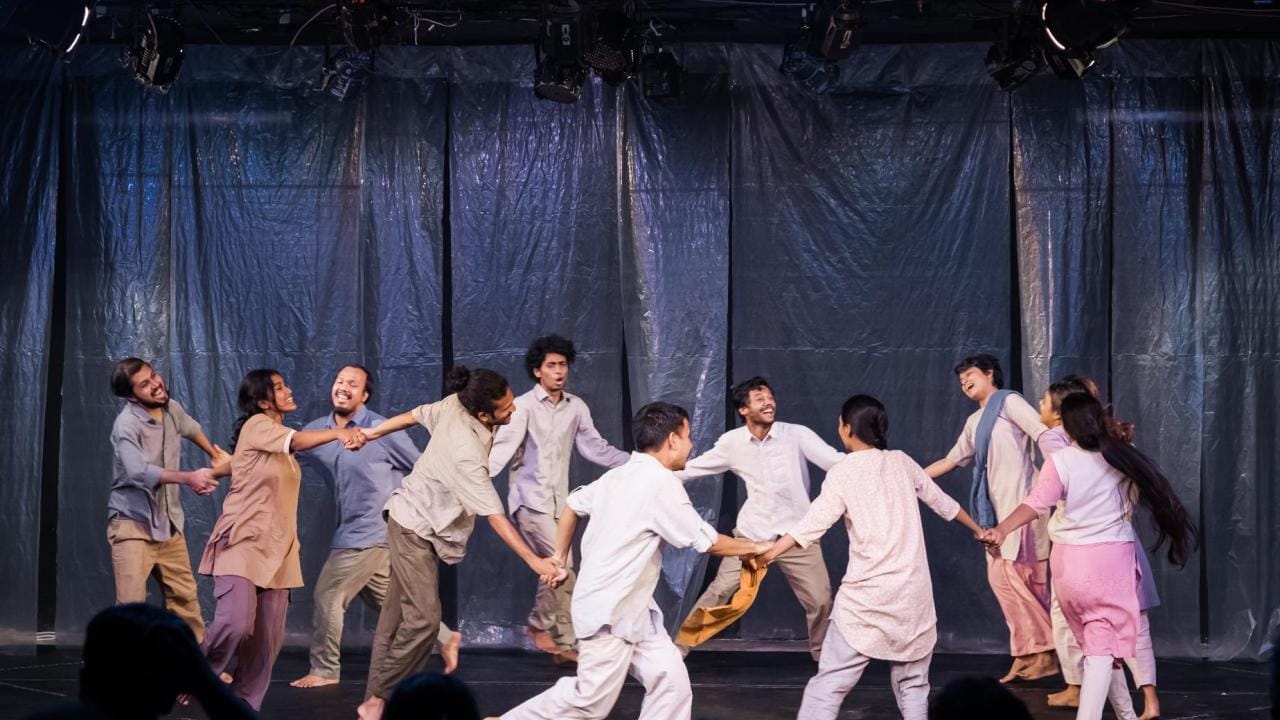
"Tobuo Jege Uthi" follows sequence but not structure. It is abstract in its wordlessness, yet intentional in its execution and literal in its depiction. The sound design enhances the atmospheric immersion, keeping the audience anticipating the next scene.
The almost-silent film captivates immediately as there are no introductions, no formal beginnings, no curtain drops. You enter a dark room to find ten people wandering aimlessly through transparent curtains, seemingly unfazed by their surroundings.
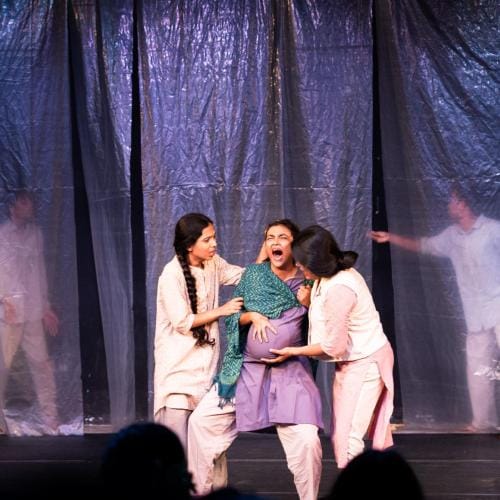
Gradually, they begin curling into one another, marking the start of the show; and within it, the beginning of their lives. They merge together; even in separation, they appear indistinguishable, running, jumping, and laughing in play. At first, you do not notice their differences, because you are not meant to.
Until the sound team arrives – beating their drums loudly and sorting them neatly into five men and five women; for the first time, the one thing that makes them so starkly different is highlighted: their genders. The actors excel in their expressions, in their agony, and even in their loud obnoxiousness. Mohsina Akhter is not one to shy away from uncomfortable topics or their portrayal. This is evident in the acts of violence shown – depicting a woman being touched and manhandled repeatedly by a group of men, or even in the act of childbirth.
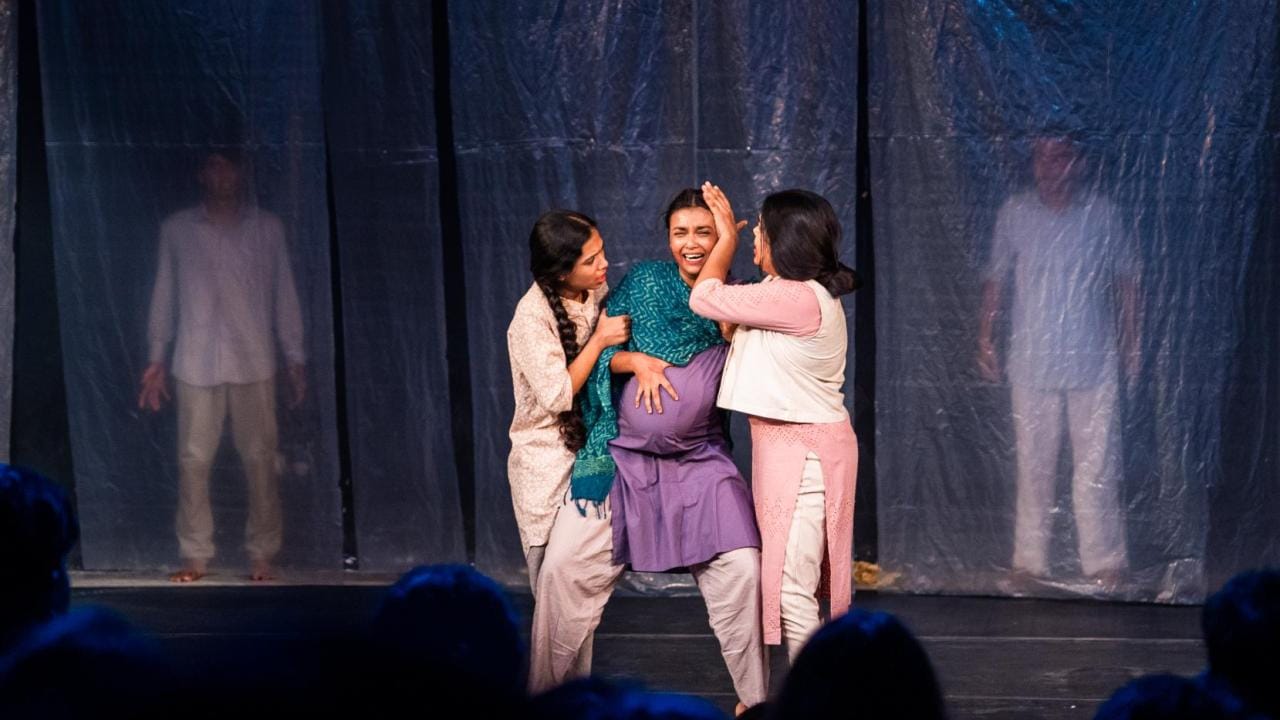
It tells the story of womanhood that we can all relate to, with some parts hitting too close to home. It forces us to confront the system of patriarchy that we have either perpetrated, succumbed to, or simply accepted. For some, it becomes so ingrained that it manifests as hypocritical internalised misogyny.
The sound was meticulously designed to evoke discomfort; periods of silence broken by bursts of loud laughter or cries of pain. Mantras are repeated and distorted until words like "Darun, Shundor, Beautiful, Wonderful," which literally signify beauty, begin to sound demonic.
The discomfort intensifies at certain points, with depictions becoming so literal that you want to look away but you cannot. Theatre has a way of doing that: presenting the raw image of the society we work so hard to distract ourselves from. From showing how a baby grows in the womb, to the innocence of childhood, to the drastic commodification of women – the "pimpification" of women.
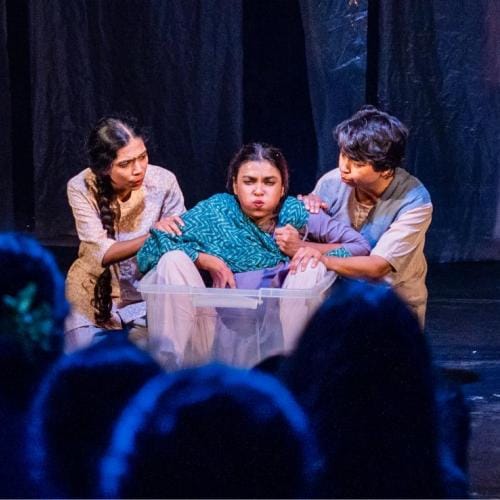
Although branded as a silent show, there are moments when the fourth wall breaks so intensely that it makes you squirm in your seat.
The show is a commentary on patriarchy, and at times its implications for both men and women. It highlights how men believe their masculinity lies in their strength and the amount of physical labour they can endure. It also exposes the hypocrisy of a world where we are born to a woman, connected by the umbilical cord, yet it is the woman who bears the brunt of discrimination, hatred, and horrors for her physicality; both for what she can control and what she cannot.
The women who try to resist it almost always have to do so alone, condemned not only by men but often by their own kind. Childhood memories turn rotten when the same eyes transform into those of vultures that devour them. The same mouths that once giggled while playing together shout obscenities when we walk the streets.
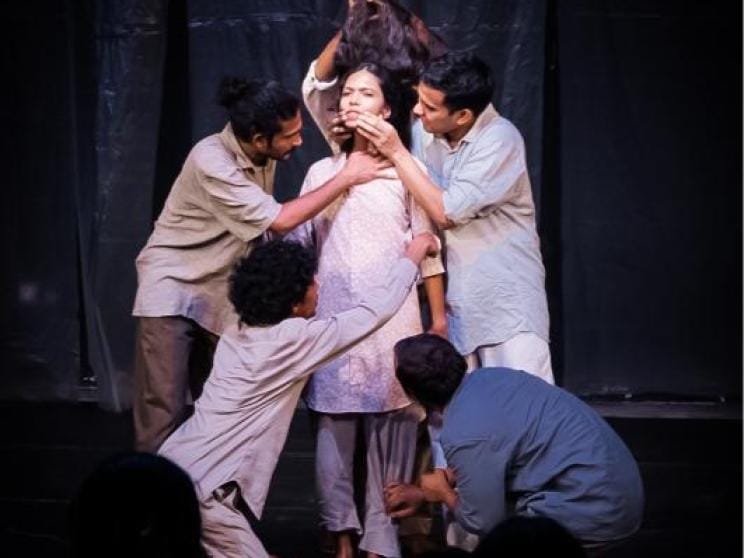
The show runs for only about 48 minutes, yet it keeps your eyes fixed on the stage the entire time.
Mohsina Akhter's story is the story of all women. You can feel the unfairness, horror, and anger that come with being a woman, the rage that boils within their skin as you sit amidst the audience. The audience itself is made up of women and men of all ages, each equally moved and in awe after the show. In Akhter's own words, these are the stories of her life, and ones she will continue to tell, and tell loudly: "A warrior woman, brave in the battlefield. From the insults and neglect towards women in this land to today's 'rape' protests, I will continue to condemn the failure of the state."



 For all latest news, follow The Daily Star's Google News channel.
For all latest news, follow The Daily Star's Google News channel.
Comments